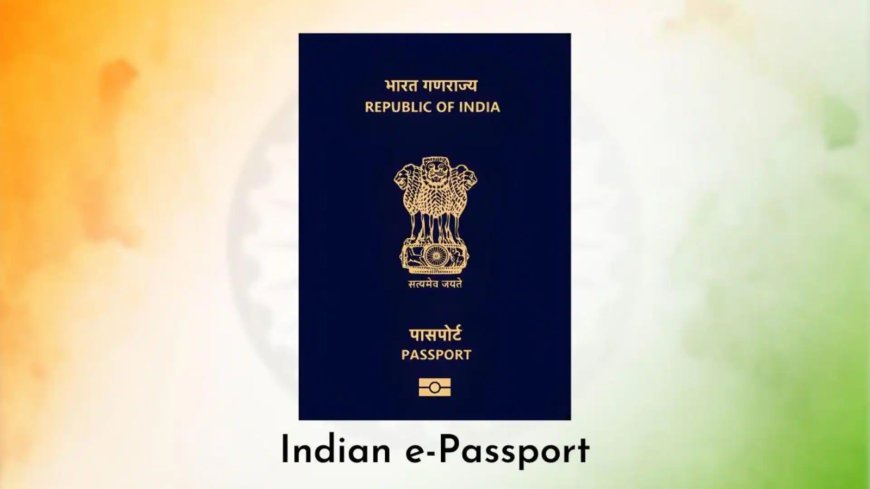E-Passports Arrive with Enhanced Security and Convenience
India has officially rolled out its highly anticipated e-passport, marking a significant leap forward in travel document technology. This modern, secure, and efficient passport aims to streamline international travel for Indian citizens, offering a host of benefits over its traditional counterpart.

India has officially rolled out its highly anticipated e-passport, marking a significant leap forward in travel document technology. This modern, secure, and efficient passport aims to streamline international travel for Indian citizens, offering a host of benefits over its traditional counterpart.
What is an E-Passport?
At its core, an e-passport, or electronic passport, is a regular passport embedded with a small electronic chip. This chip securely stores the same personal data printed on the passport's data page, including the holder's name, date of birth, and biometric information like a digital photograph and, in the future, potentially fingerprints. The chip also incorporates advanced security features to prevent tampering and counterfeiting.
Key Benefits of the E-Passport:
The introduction of e-passports brings with it a wave of advantages for Indian travelers:
- Enhanced Security: The embedded chip and its cryptographic security features make e-passports significantly more difficult to forge or tamper with. This enhanced security helps combat identity theft and strengthens border control measures.
- Faster Immigration Processes: At e-passport enabled immigration counters, the data stored on the chip can be read almost instantly, drastically reducing processing times and leading to shorter queues at airports.
- Increased Durability: While the physical document remains, the digital information on the chip is less susceptible to wear and tear compared to printed data.
- Global Recognition: E-passports comply with international standards set by the International Civil Aviation Organization (ICAO), making them globally recognized and facilitating smoother entry into countries that also utilize e-passport reading systems.
- Future-Ready: The technology allows for the addition of further biometric data in the future, paving the way for even more secure and efficient travel experiences.
How to Apply for an E-Passport Online:
The application process for an e-passport largely mirrors that of a traditional passport, with the convenience of online submission:
- Visit the Passport Seva Portal: Head to the official Passport Seva website (
passportindia.gov.in - Register and Log In: New users will need to register, while existing users can simply log in to their accounts.
- Choose Application Type: Select "Apply for Fresh Passport/Re-issue of Passport."
- Fill the Application Form: Accurately complete the online application form with all required personal and travel details.
- Pay Online: Make the required payment for your passport application through the available online payment options.
- Schedule Appointment: Book an appointment at your nearest Passport Seva Kendra (PSK) or Post Office Passport Seva Kendra (POPSK).
- Visit the PSK/POPSK: On your scheduled date, visit the PSK/POPSK with all necessary original documents and their photocopies for verification. Your biometrics (photograph and fingerprints, if required) will also be captured here.
- Police Verification: Depending on your application type, a police verification may be conducted after your PSK visit.
- Passport Dispatch: Once all verifications are complete and approved, your e-passport will be printed and dispatched to your registered address.
Who Can Apply for an E-Passport?
Currently, all Indian citizens applying for a fresh passport or re-issuing an existing passport are eligible to receive the new e-passport. The government's goal is to transition all passport holders to the electronic version, ensuring enhanced security and convenience for all.
The rollout of e-passports marks a significant milestone for India, aligning the nation with global best practices in secure travel documentation. This initiative promises to make international travel more seamless, secure, and efficient for millions of Indian citizens in the years to come.
